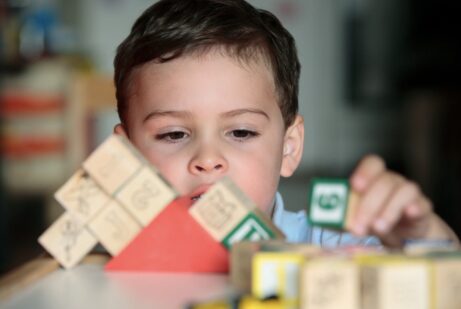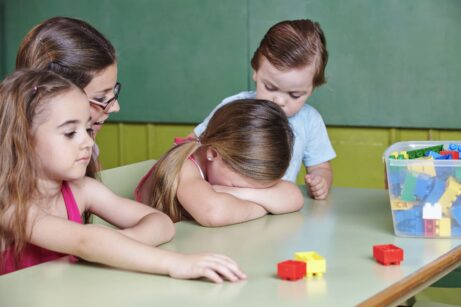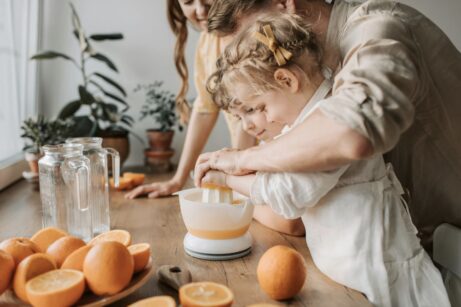Body in Motion, Mind in Balance: Why Wellness Belongs in Montessori Education
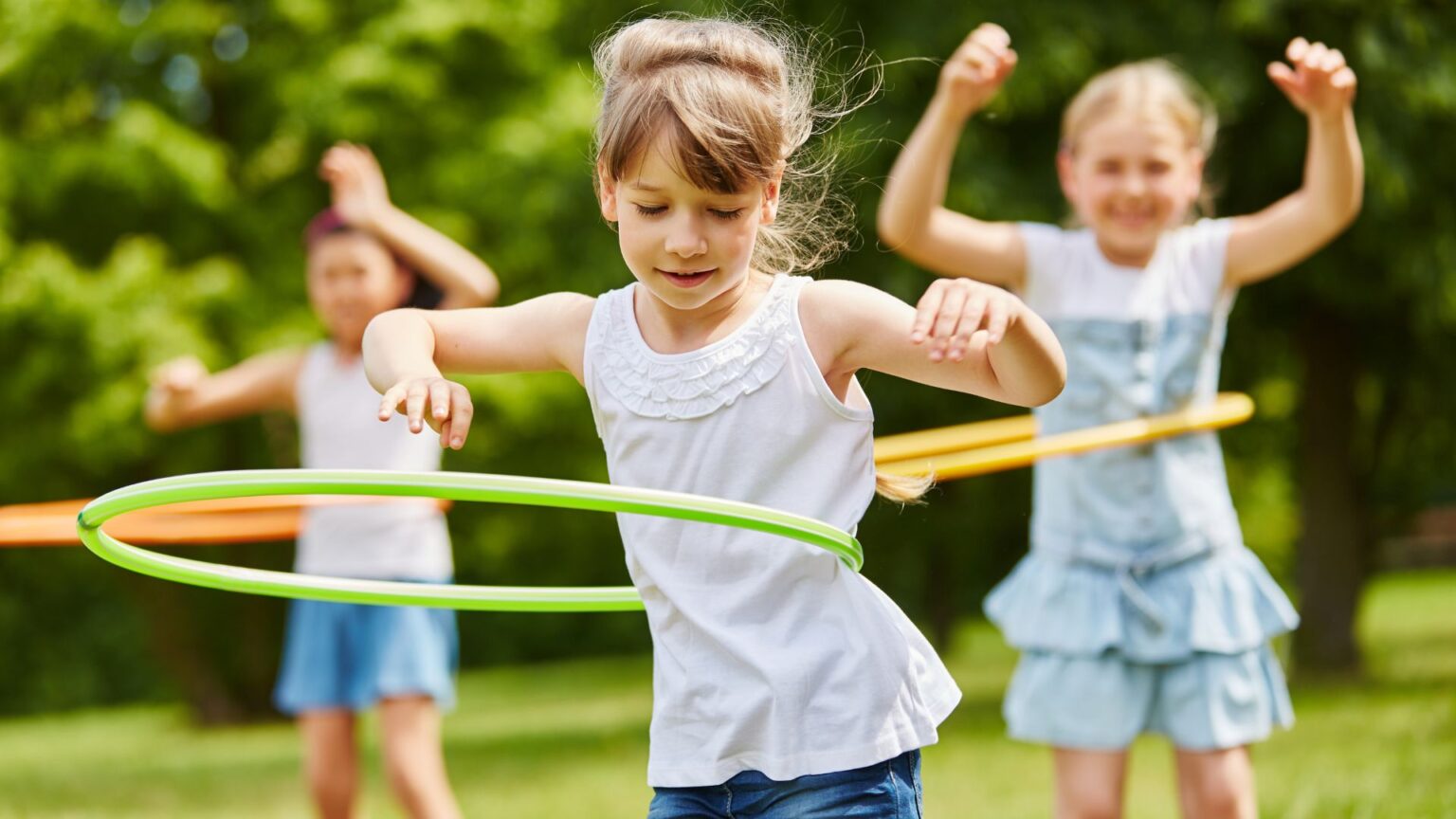
In recent years, we’ve all felt how delicate the balance between body, mind, and emotions can be. The pandemic reminded us how essential it is to nurture resilience—not only physical, but also mental and emotional. Within the Montessori approach, we have one of the most natural tools to build this resilience from early childhood: movement.
What Does “Wellness” Really Mean?
Wellness is more than just a healthy lifestyle. It’s an intentional choice—an active pursuit of balance across the many aspects of life. It’s not only about the body; it’s about the whole person.
There are six key dimensions of wellness that form a strong foundation for lifelong wellbeing:
- Physical – movement, nutrition, sleep, body care
- Emotional – emotional awareness, stress regulation, relationships
- Spiritual – life purpose, inner peace, connection to something greater
- Social – healthy relationships, sense of belonging, community support
- Mental – learning, creativity, cognitive engagement
- Environmental – connection to nature, respect for surroundings, sustainability
Movement as a Cornerstone of Montessori
In Montessori, movement isn’t an afterthought—it’s central to development and learning. Dr. Montessori wrote that the mind and movement are one. A child develops through the body, and the freer and more natural the movement, the deeper the learning.
When children are allowed to move freely within a carefully prepared environment, they not only build physical control but also concentration, collaboration, problem-solving, and resilience. These are the very foundations of lifelong wellbeing.
Physical Literacy: A New Approach to Movement
Modern research confirms that physical activity supports not just physical health, but emotional and cognitive health as well. In the Montessori setting, it makes perfect sense to focus on physical literacy—the ability to move confidently, competently, and joyfully across various situations.
This includes skills like:
- balance and coordination
- spatial awareness
- jumping, throwing, climbing, and body alignment
- and importantly, social interaction through movement
This is not about performance or competition—it’s about natural, meaningful movement that supports life itself, from early childhood to old age.
Wellness in the Classroom—and Beyond
Montessori offers countless ways to incorporate wellness in a meaningful, integrated way. Through practical life activities, children build healthy routines and self-awareness. Movement is woven into the fabric of daily life—not limited to “exercise time.”
We can deepen this by adding:
- breathing exercises to calm the nervous system
- mindfulness, embedded in everyday activities like water pouring or table cleaning
- nature experiences, which nurture the body and the child’s relationship with the world
This holistic approach helps children learn to care for themselves, understand their emotions, develop relationships, and respect their surroundings—all essential tools for navigating life’s challenges.
Resilience Begins with the Body
Self-care is not selfish—it’s the foundation of being able to care for others and face life’s uncertainties. Whether we’re parents, guides, or educators, it’s time to stop seeing wellness as an “add-on” and begin embracing it as a natural part of learning and living.
Montessori gives us the tools, the philosophy, and the structure. What remains is to bring wellness into everyday practice—gently, intentionally, and authentically.
This blog post was inspired by the talk given by Barbora Murphy during the Childhood Potential Conference. If you’d like to listen to the full presentation, you can find it in our Childhood Potential Club.
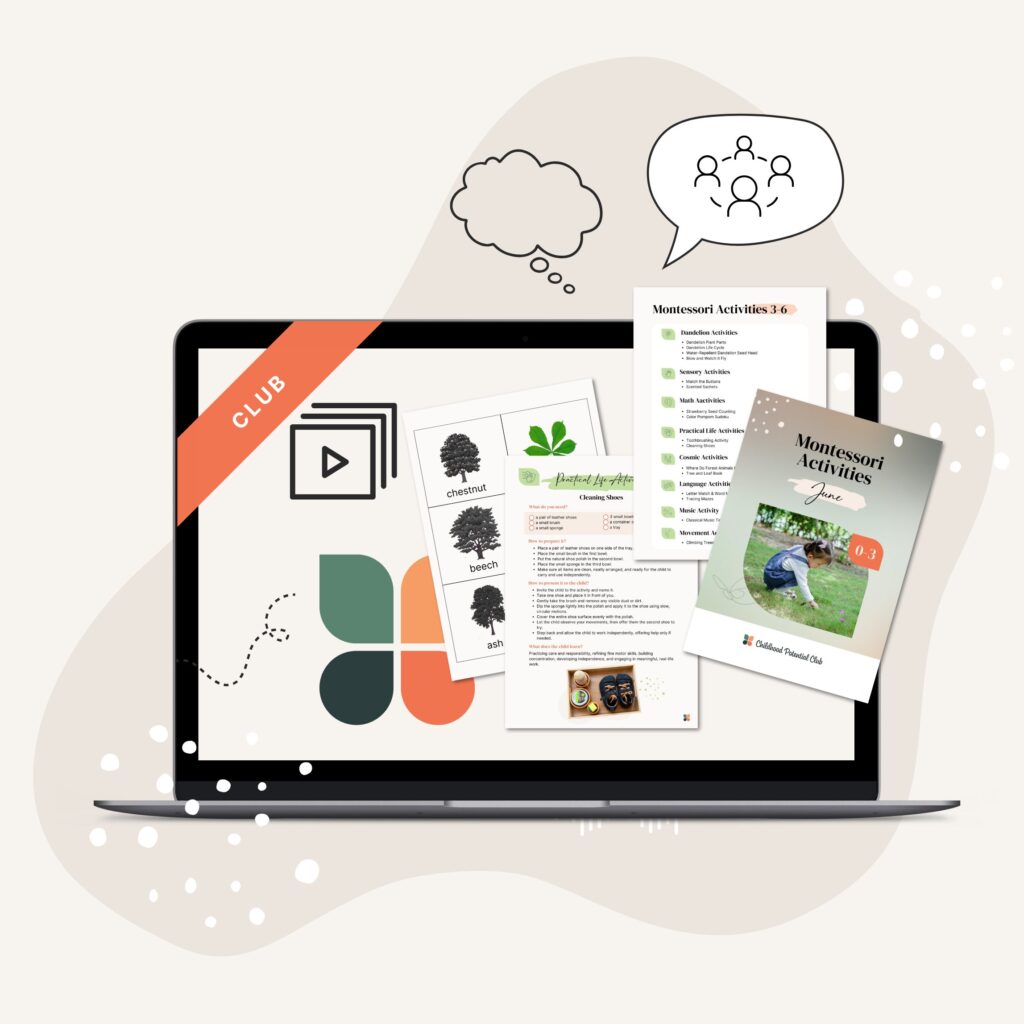
Childhood Potential Club
Feel empowered and confident with world-class expert guidance and a rich Montessori resource hub. Guide with purpose and make a lasting impact.
Montessori Beginnings
YOUR ULTIMATE
MONTESSORI PARENTING COURSE
FOR ZERO TO THREE
Gain clarity and confidence in your parenting to raise a resilient, independent and joyful child.
